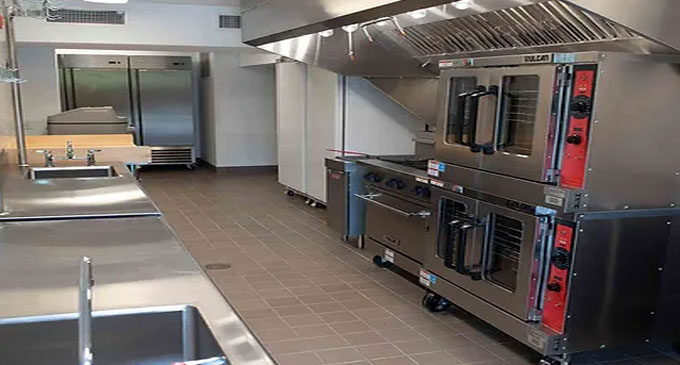Food entrepreneurs take off from the Enterprise Center

By John Railey
For the past four years, working right through the pandemic, the Shared-Use Kitchen at the Enterprise Center has been helping food businesses grow, adding to the East Winston economy and beyond. Against the backdrop of the highly competitive, costly food-service field, the participants in this program, all people of color, rent space for $500 a month, giving them a jumpstart to their dreams.
“This program afforded me a way where I could make fresh fruit juices right here in my hometown of Winston-Salem, on historic Martin Luther King Drive, all right here near the Happy Hill project where I grew up, with limited access to fresh food,” said William Fulton, owner of the Jugo Bar, which has expanded into Charlotte. He is in the process of moving his production to his own site.
The S.G. Atkins Community Development Corp. recently landed a $1 million federal grant to expand the Shared-Use Kitchen beyond the current 10 participants. “These businesses are growing,” said Carol Davis, who leads the Enterprise Center and its backing force, the Atkins CDC. “The next step is food trucks or brick-and-mortar sites for them. We want to see them make their culinary dreams a reality.”
And, as that happens, the Shared-Use Kitchen will be expanded to allow room for more participants.
Davis is also the special assistant for community development and engagement to Winston-Salem State University Chancellor Elwood Robinson. She works with the program participants, and so does Telissa Ward, the center’s business coordinator, who helps the Shared Use participants with marketing and networking plans, as well as contracts.
The Shared Use initiative aligns with WSSU’s Center for the Study of Economic Mobility (CSEM), which studies the causes and effects of generational poverty and puts research-based solutions before policymakers and the public. CSEM’s work includes making the invisible visible, helping talented people break down barriers to rise in upward economic mobility, including through their own businesses.
The grant the Atkins CDC won is from the Economic Development Administration of the U.S. Commerce Department. Davis hopes it will lead to the creation of 50 jobs, the retention of 15 jobs, and generate $680,000 in private investment.
The Shared-Use Kitchen is fully licensed and state-of-the-art, an ideal space for food artisans, chefs and bakers to prepare and create quality items for purchase. Participants share the space on a rotating basis. The $500 a month in rent they pay is far less than they’d pay for a sole space in the conventional, highly competitive marketplace. Consequently, the qualified participants get a huge jumpstart.
“It helped lower the costs so we could state our business,” said Shanta Faison, whose catering business, the Twin City Catering Co., has done much work for the National Black Theatre Festival. She also sells jarred collard greens, Rosey Bloom’s Collard Greens, to multiple retailers.
Faison, who was one of the first participants in Shared Use, now has about six employees, three on a regular basis and three more on-call, given the nature of the catering business. She wants to eventually have her own workspace.
Another early participant in the program was Crissy Faison, friends with Shanta Faison but not a relative. “Thankfully, I was able to become one of the first renters for my business, LeanBack Soulfood. When I first moved here from Durham, I didn’t know if I would be able to find a shared kitchen like they have in Durham,” she said. “The food industry can be competitive, but I have a strong work ethic and belief in LeanBack. LeanBack isn’t going anywhere, which is why I am looking for a space where I can carry on my business. The Shared Use Kitchen is definitely needed,” said Faison, who is launching four seasoning products.
Davis noted that the Shared-Use Kitchen participants have not had the backing of investors like others in the food business industry have had. The program is tearing down the economic barriers they face, enabling them to launch their dreams.
John Railey, raileyjb@gmail.com, is the writer-in-residence for CSEM. For more information about the Shared-Use Kitchen, go to www.sgacdc.org/shared-use-kitchen.









